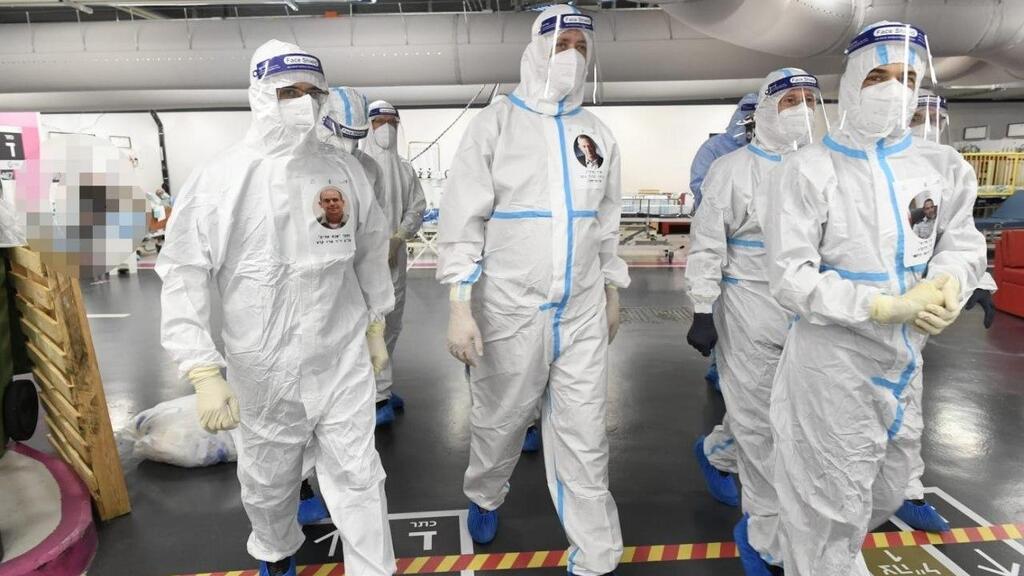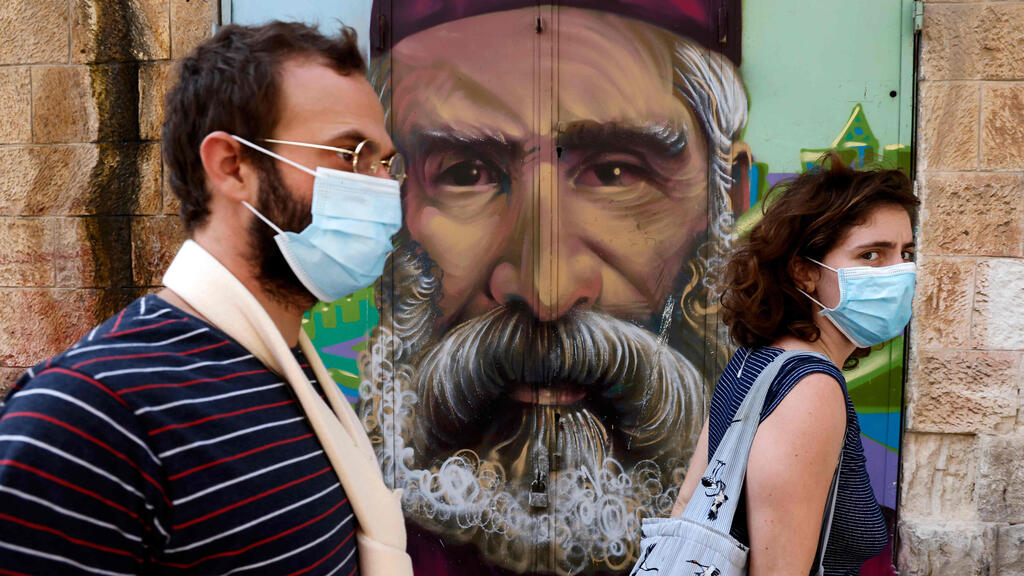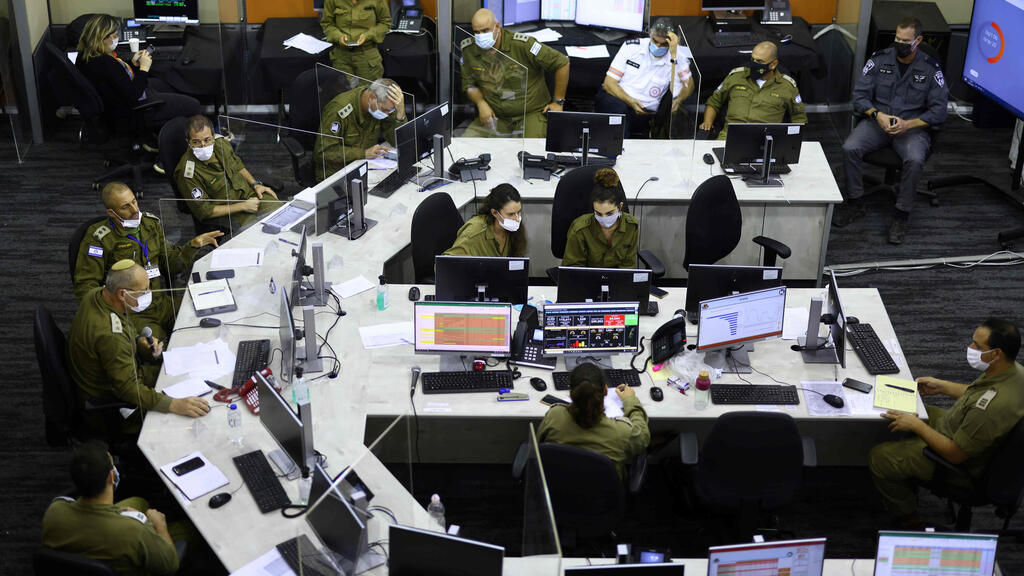Getting your Trinity Audio player ready...
It is a truth universally acknowledged that in the fields of science and technology, a well-articulated problem leads to a successful solution.
The disagreements that we are all currently witnessing among scientists and doctors about the handling of the coronavirus pandemic stems primarily from the lack of discussion about which problem exactly we are hoping to solve.
4 View gallery


Defense Minister Benny Gantz, center, visits the IDF coronavirus ward at the Rambam Healthcare Campus in Haifa
(Photo: Defense Ministry)
Let's assume we are told there will be no vaccine for coronavirus. What would we do then? Would we continue to flatten the curve, occasionally imposing lockdowns until the end of time? Not likely.
Now let us assume that we are told that a biological vaccine would become available for the entire Israeli population within 18 months.
The options of no vaccine and having one available only 18 months down the road would have the same impact on our economy and our society.
Now let's look at a basic concept of Game Theory: There are games that are finite and there are games that are infinite.
The object of a finite game is to beat the opponent and bring the game to an end. But in an infinite game, the object is to remain on the board and there is no final victory.
In the case of the pandemic, an infinite game translates to living in the shadow of a virus that may remain in our world indefinitely.
In other words, this means adopting a strategy that assumes there will be no vaccine, herd immunity or any other solution that could eradicate COVID-19.
If we accept that premise, we must determine the maximum amount of contagion we can allow while still having a functioning economy.
The Israeli government adopted a strategy that defines an acceptable rate of infection in the entire population and the means to control it by breaking chains of contagion using epidemiological investigations (tracing) and localized lockdowns. This strategy has been called the "traffic light" method, with areas defined as red, orange, yellow or green depending of levels of infection.
Thus far it has not been successful. Breaking the chains of infection when the daily case loads are in the hundreds or thousands requires a tracing system that was not available in Israel until now.
Even if Israel does implement a system that can deal with the daily contagions, the level of cooperation of the general public will still be an unknown factor - both in people's willingness to be tested themselves and their readiness to submit to epidemiological investigations that could force others into quarantine.
Research has shown Israelis are uncooperative with epidemiological investigators, with as many as 46% of the cases investigated leading nowhere.
Young people often ignore symptoms when they appear, out of concern for their livelihoods and that of others whom they may have come into contact with, believing there is a very low chance of serious illness and perhaps even death among their peers. Instead, they wait for their symptoms to intensify or disappear.
Lockdowns have also shown themselves to be ineffective, and given the make up of Israel's population, there is no reason to believe public compliance will change if lockdowns are imposed in the future.
So what is the alternative?
An infinite game strategy aimed at protecting hospitals from overcapacity could lead to a different response than the one adopted thus far.
If the problem we are trying to solve becomes protecting hospitals from being overrun, research suggests defining a maximum level of contagion among vulnerable populations.
Increased contagion rates among those not at risk would enable the economy to function.
The major difference between these two Game Theory strategies is the level of cooperation that can be expected from the public.
By adopting an infinite strategy, expecting the virus to be with us for an sustained period, we can shield the vulnerable members of society and the rest of the population would be more inclined to adhere to health mitigation directives, understanding the danger to the economy and to their incomes.
Directives such as wearing masks in enclosed spaces but not outside and preventing people from congregating in great numbers in any one location would be widely accepted by the general public.
If the finite strategy adopted by the government remains unchanged, there could be unrealistic expectations of lower contagion rates and no end to the harm done to the economy or to the public's willingness to cooperate with health directives.
Professor Amnon Shashua is a computer scientist at the Hebrew University in Jerusalem




